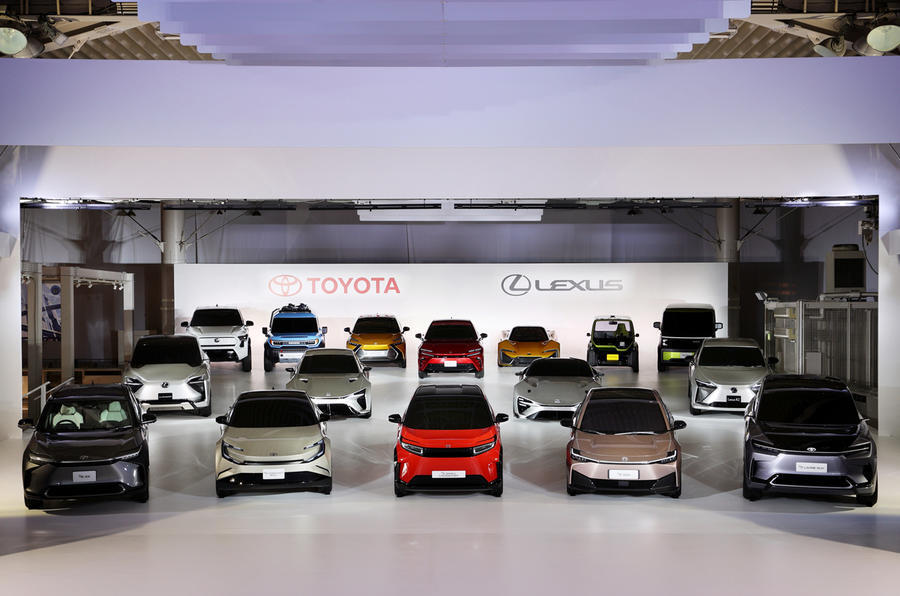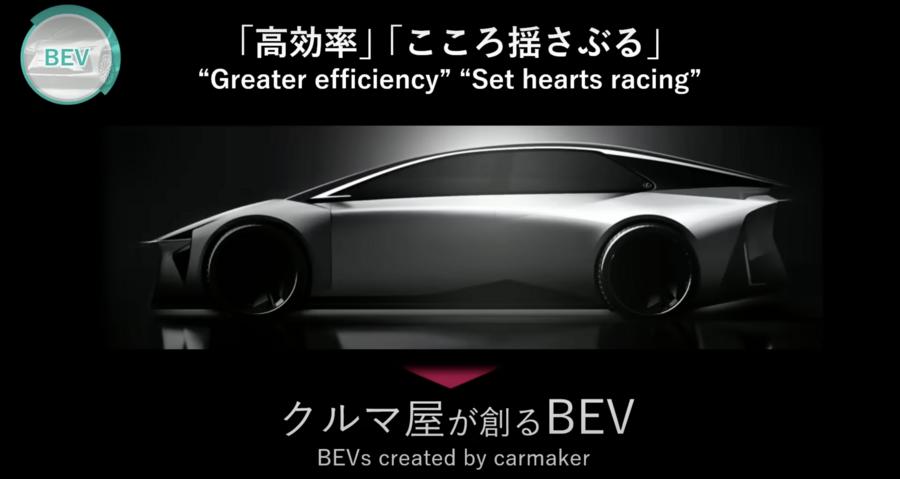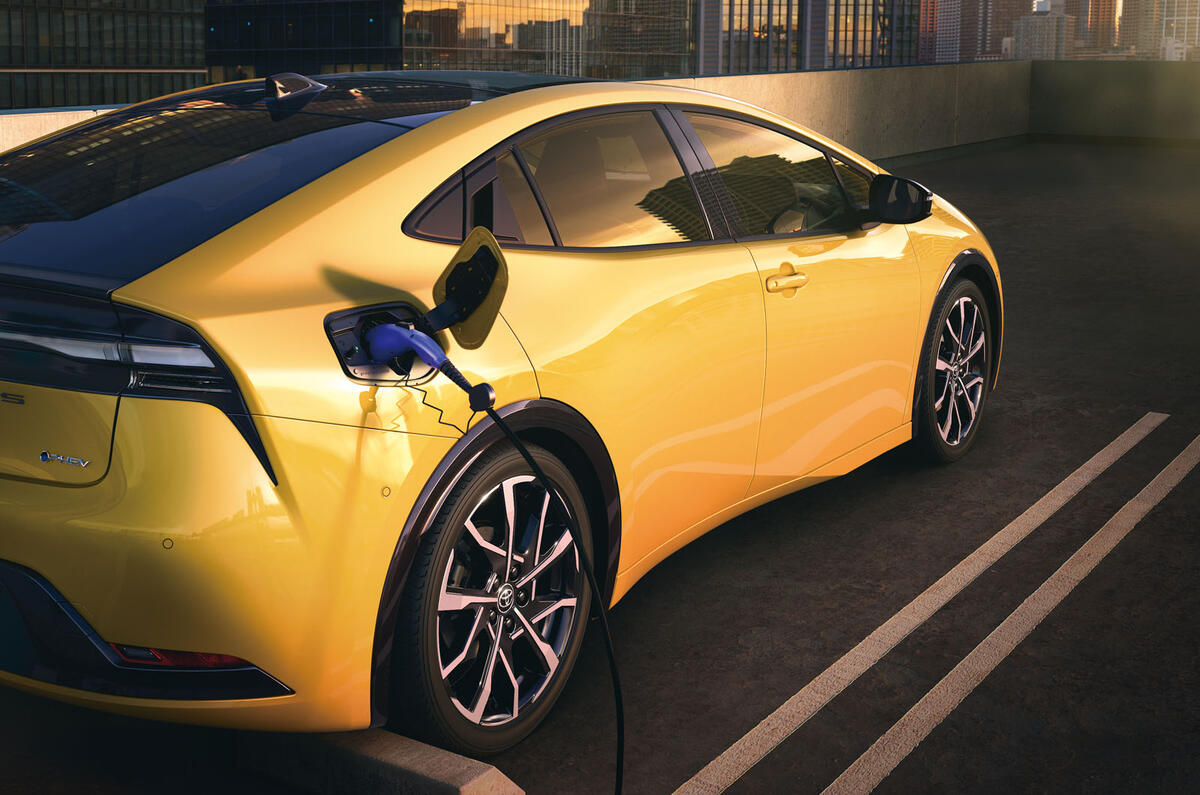Toyota has renewed its commitment to hybrid cars under new president Koji Sato, announcing plans to produce plug-in hybrids (PHEVs) with an electric-only range of more than 200km (124 miles).
Announcing the company’s new management strategy, Sato said: “First we will thoroughly implement electrification, which we can do immediately. To steadily reduce CO2 emissions from where we stand now, we will promote the practical popularisation of electrified vehicles. We will strengthen sales of hybrid electric vehicles [HEVs], including in emerging markets, and increase the number of plug-in hybrid electric vehicle options.
Executive vice-president Hiroki Nakajima – who oversaw the development of the Toyota iQ city car and the latest Toyota Hilux – added: “By increasing battery efficiency to extend the EV-mode driving range beyond 200 km [124 miles], we will reposition PHEVs as ‘the practical BEV’ and will work harder on developing this as another BEV option.”
Toyota has been a keen proponent of PHEVs, arguing that many BEVs’ batteries aren't used to their full potential very often. This means BEV drivers lug around redundant capacity and weight, thereby wasting energy compared with lighter PHEVs.
Gill Pratt, CEO of the Toyota Research Institute, last year told Autocar: “We all know that we’re in an era of limited battery supply. Well, couldn’t those battery cells [for one BEV] have been used for a better purpose in eight PHEVs, like the Toyota RAV4 Prime, where the battery capacity would have contributed to much more total emissions savings on almost every journey?”
![]()
Read more: "EVs aren't the only answer": Toyota scientist on the future of cars
However, PHEVs have recently come under scrutiny. The UK government recently deferred its definition of a vehicle with a “significant zero-emission capability”, citing ongoing uncertainties around their real-world emissions. And a 2022 report from the International Council on Clean Transportation found that PHEVs’ real-world fuel consumption was three to five times higher than the values yielded by official WLTP testing, with emissions following suit.
As such, Toyota isn't favouring PHEVs over BEVs, remaining committed to a multi-energy approach including BEVs, PHEVs, HEVs, FCEVs, hydrogen combustion, synthetic fuels and biofuels.
Sato said: “We will work to promote electrified vehicles and reduce CO2 emissions with leaving no one behind, including in emerging markets.
“Through this all-direction approach, we aim to reduce average CO2 emissions for vehicles we sell worldwide by 33% by 2030 and by more than 50% by 2035 compared to 2019. We will continue to promote decarbonisation globally and steadily toward 2050.”

The firm now plans to launch 10 new BEVs – in addition to the bZ4X SUV and Chinese-market bZ3 saloon – by 2026, targeting 1.5 million annual BEV sales by that point.
These are expected to use the existing e-TNGA platform and broadly mirror Toyota’s current ICE car line-up in terms of positioning, with a range of crossovers and family-sized SUVs.
Executive vice-president Yoichi Miyazaki confirmed that one will be a three-row SUV for the US market, using batteries produced in North Carolina.
In Asia, Toyota will begin production of battery-electric pick-up trucks and a “a small battery EV model” by the end of 2023.
Toyota will also establish a new division to accelerate development of its "next-generation" BEV, also set to arrive in 2026. This new, streamlined division will comprise one executive overseeing engineering, production and business interests.

According to Nakajima, this next-generation BEV will “double driving range by using batteries with far greater efficiency”. For reference, today's bZ4X has a 318-mile range according to the WLTP test cycle.
The next-generation BEVs will also offer “designs and driving performance to set hearts racing”, Nakajima said.
He cited the software capabilities of Toyota’s Arene software (currently in development) as a key component of these new models, with the operating system allowing a driver to customise their car’s ride, handling, acceleration and braking characteristics.
“By also honing the vehicles' essential attributes, we will create cars that are more fun to drive in terms of both hardware and software,” added Nakajima.
Read more: 'Our Mt Fuji': Toyota has a mountain to climb on software (Business subscription required)







Join the debate
Add your comment
I get paid more than $200 to $400 per hour for working online. I heard about this job 3 months ago and after joining this I have earned easily $30k from this without U having online working skills . Simply give it a shot on the accompanying site…
Here is I started.… www.jobsrevenue.com
Hi xxxx, good points, but i guess from the other perspective a BEV has all the weight and cost of batterries that for many people are not used all the time. I agree with your point that it is potentially niche, but equally having the flexibility of being able to refuel traditionally, also opens the market to many more people, who then don't feel they need a second car. I suspect you like me believe that there are a lot of PHEVs that are bought largely for the tax benefits not real world usage.
You've got all the addtional costs and drawbacks of an ICE engine that might only do a couple of hundred miles a year. And that's not including service costs of a engine that might only do 10,000 miles in it's lifetime, very niche springs to mind.
Looking forward to when PHEVs are found out.
If you're right then surely it proves that PHEVs are the perfect everyday car and nobody really needs all those batteries and a 2.5 tonne car?
A LEAF doesn't weigh 2.5 tonnes, although something with a 25kw battery and 4 cylinder engine won't be far off.
PHEV's the perfect everyday you say, not at that price, complexity and with such poor efficiency. And that's before they're banned in 2030.
A Leaf barely goes 100miles, especially in the winter. That's why nobody buys them anymore.
Still perplexed by your reasoning - makes no sense at all. While you think about it perhaps you can also look up the weight of a Prius plug-in. I think you'll find it's 1 tonne lighter than the 2.5 tonnes you claim.
100 mile Leaf, no one buys them, do you even believe youself. 1 in 5 cars are now BEV's and in Norway, it's cold there by the way, it's now more than half.
oh and it was you that first mentioned BEVs in this class weigh 2.5 tonne, perhaps you should look up the weight of the LEAF or even the bigger faster Model 3. No woder you are perplexed.